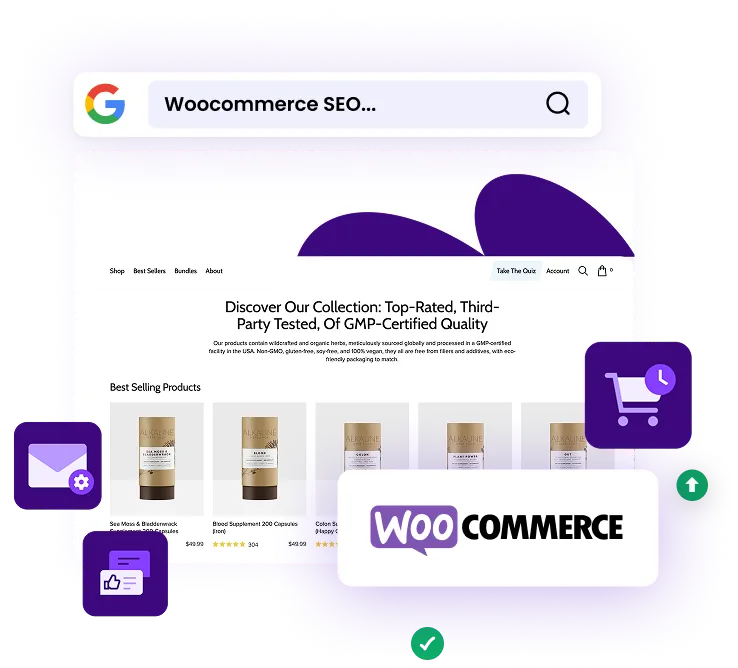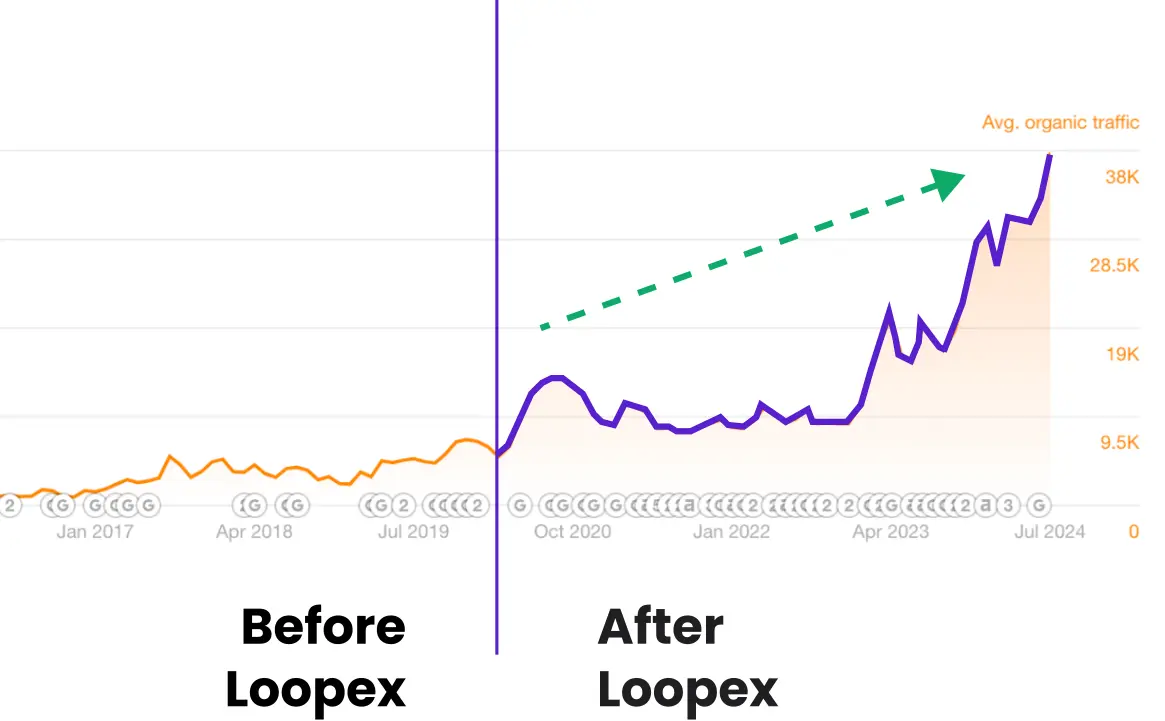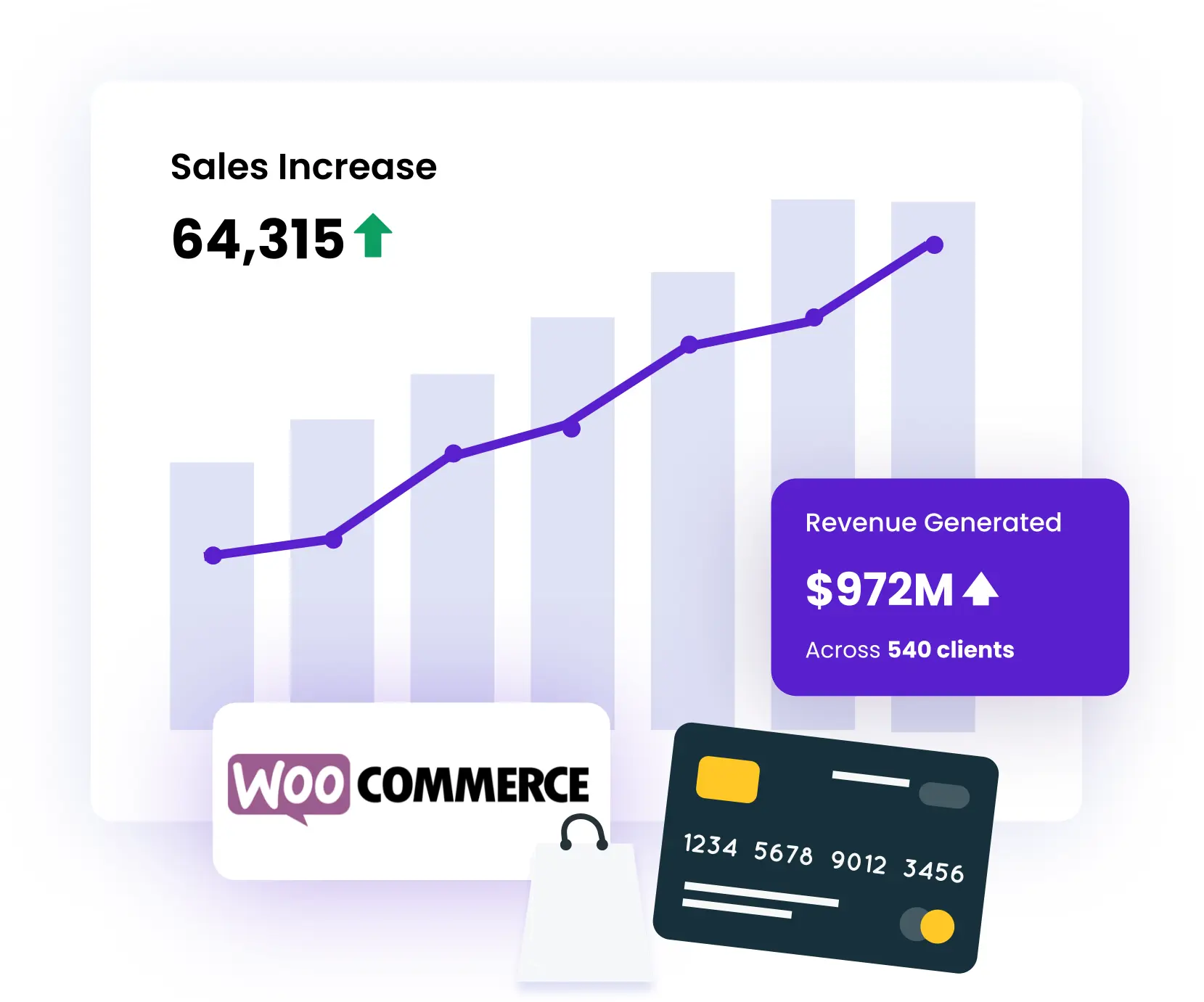







_logo%202.svg)




.svg)
Partner with our expert WooCommerce SEO agency to drive better organic search results for your website.























Issue #1:
Parameter-Heavy URLs and Filter Pages Causing Crawl Waste
WooCommerce stores often generate multiple dynamic URLs due to filters, sorting, pagination, and layered navigation (e.g., ?orderby=price, ?filter_color=black). These parameters can lead to crawl budget issues, duplicate content, and diluted ranking signals when left unchecked.
Although these pages serve users, they’re not all useful to search engines. Google may struggle to determine which version to index, spreading link equity thin and hurting product visibility.
We conduct a technical SEO audit to identify problematic parameter URLs and apply canonical tags, noindex directives, or block crawling when appropriate. This helps Google focus on the most valuable pages, improving crawl efficiency and product page rankings.
Issue #2:
Bloated Themes and Plugin Overload Slow Down Your Site
WooCommerce's biggest strength is also its biggest danger: too-heavy themes, outdated plugins, and too many add-ons can reduce site speed. Many stores unknowingly run too many resource-heavy plugins or use multipurpose themes bloated with features they don’t need.
Slow load times lead to higher bounce rates and lost conversions, especially on mobile. Page speed also directly affects your organic rankings.
We audit your site for slow-loading elements, make suggestions on removing unnecessary plugins, and streamline your theme’s performance. The result: a faster, leaner WooCommerce site that performs well for both users and search engines.
Issue #3:
Lack of Default SEO Structure and Schema Markup
In contrast to other hosted platforms, WooCommerce does not incorporate SEO-friendly frameworks or rich schema by default. Product pages don't contain valuable information like structured breadcrumbs, product schema, or clean metadata unless properly configured.
This puts the burden on store owners to implement their own SEO foundation, and many stores miss critical markup that could improve search visibility and click-through rates.
We fix this by setting up a solid technical base for your WooCommerce SEO, including schema for products, reviews, pricing, and availability, and cleaning up titles, URLs, and meta descriptions across the site. This gives your products the best chance of standing out in search results.


















Meet the WooCommerce SEO experts with 1mln hours expertise



.svg)

.webp)




Read our case studies
.svg)

Develops content clusters and blog strategy aligned with your product catalog
150-point SEO audit covering WooCommerce-specific issues
Fixes tag, filter, and variant URLs with smart canonicals and redirects
Adds clean product and category schema
Monitors Core Web Vitals, helping prioritize fixes that support search performance
Creates internal linking strategies to boost crawlability and product discovery
Secures backlinks from eCommerce blogs, product roundups, and SaaS websites your buyers already trust
Provides dynamic reports and schedules transparent catch-up weekly calls
Often writes generic blog content without
Performs broad SEO audits, but might miss WooCommerce-specific technical issues
May overlook crawl traps from tag, filter, and variant URLs
Relies heavily on generic SEO plugins for schema markup
Offers standard speed optimizations like image compression
Internal linking is often limited to navigation or auto-generated blocks
Link building lacks topical relevance and may rely on low-quality directories
Reports focus on rankings and traffic, but might lack meaningful business context
Knows the brand well and can align content with broader marketing goals
Performs general audits, but WooCommerce-specific SEO is rarely a priority
Aware of filter and tag issues, but often doesn’t resolve them at scale
Can implement schema manually, but it's often deprioritized or inconsistent
Typically doesn’t monitor Core Web Vitals closely unless flagged as urgent
Can support internal linking, but it’s usually handled ad hoc
Link building is inconsistent and hard to scale internally
Reports align with internal goals, but usually rely on manual tracking tools
%201.svg)


.svg)

.svg)

.svg)

.svg)
.svg)
.webp)
.webp)
.webp)
WooCommerce gives you full control over site structure, plugins, and content, which is great for customization but also makes it easy to create crawl issues, duplicate content, or performance slowdowns. We help you use that flexibility the right way, with a clean, search-friendly setup.
By default, WooCommerce can generate multiple URLs or thin content for product variations like size or color. We prevent duplicate content by managing canonical tags, cleaning up unnecessary URLs, and consolidating signals toward the primary product page.
We focus on performance factors like LCP and CLS by collaborating with your developers to clean up your theme code, defer unused scripts, optimize images, and minimize plugin bloat. These improvements help your store meet Google’s speed and usability standards.
Definitely. We add unique content, structure internal links, optimize metadata, and ensure that your most important categories are positioned to rank, not just serve as basic navigation pages.
Yes. Out of the box, WooCommerce doesn’t provide a complete schema for rich snippets. We help your developers implement structured data for products, reviews, price, availability, and breadcrumbs, either via code or trusted lightweight plugins, to improve search appearance.
We go beyond traffic by tracking keyword movements, click-through rates, bounce rates, and, most importantly, sales from organic search. We tie all SEO activity back to WooCommerce order data and revenue.
We run a comprehensive 150-point technical SEO audit covering crawlability, indexation, structured data, internal linking, site speed, Core Web Vitals, and plugin impact, using tools like Google Search Console, GA4, Screaming Frog, and more.
We identify duplicate content, JavaScript rendering issues, schema errors, sitemap conflicts, and on-page SEO gaps. From there, we prioritize fixes based on what will drive the biggest improvements in traffic, keyword rankings, and conversion performance.
We interlink products, categories, blog posts, and guides using clean anchor text and logic that both users and search engines can follow. This helps spread link equity and makes it easier for Google to crawl and rank deeper pages.
Yes. We configure hreflang tags, localized content, and country-specific metadata so your WooCommerce store ranks properly in each market. We also help you avoid common mistakes like duplicate content between language versions.